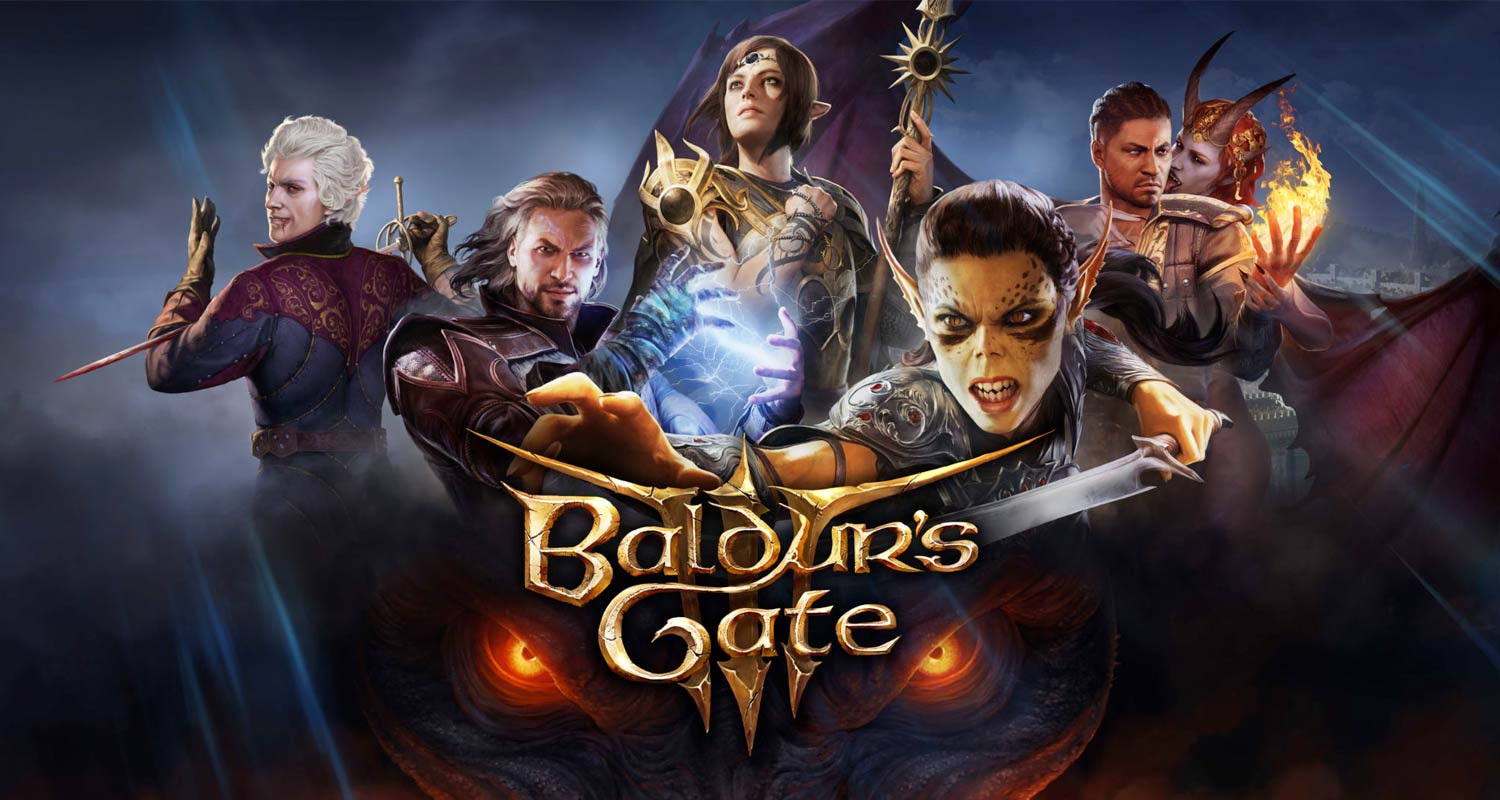 Much to fans’ surprise and delight, videogame company Larian Studios recently announced that the upcoming role-playing game Baldur’s Gate 3 will make its debut four weeks earlier than expected. For an industry that frequently delays products and rarely beats deadlines, it was an abnormal move. But, then again, little about Baldur’s Gate 3, out on Thursday, is normal.
Much to fans’ surprise and delight, videogame company Larian Studios recently announced that the upcoming role-playing game Baldur’s Gate 3 will make its debut four weeks earlier than expected. For an industry that frequently delays products and rarely beats deadlines, it was an abnormal move. But, then again, little about Baldur’s Gate 3, out on Thursday, is normal.
Its scope — 174 hours of cut scenes and 17 000 possible ending variations, according to the developers — is unprecedented. The six years it took to create the game — due, in part, to disruptions from Covid and the war in Ukraine — is unusual. And Larian CEO Swen Vincke, who is also the game’s director, is unlike any of his peers at the top of the industry. He’s a hardcore gamer and fan favourite who hosts company livestreams while clanking around in a coat of platemail armour and stars in quirky, comedic videos in which he might, say, pretend to knock out a fellow executive before storing his soul in a jar.
“I take a lot of enjoyment from doing this,” Vincke said in a recent interview. “I like going to work.”
For Larian, the stakes are also unusually high.
The company, which is based in Ghent, Belgium, hasn’t released a new title since 2017. During that time, it has swelled to 450 employees from 140 in offices across six countries, including Canada and Malaysia, making it one of the industry’s largest privately owned videogame companies. To justify its expanded size, Baldur’s Gate 3 will need to sell a ton of copies.
So far, its prospects are looking good. The early buzz from players and reviewers has been mostly positive, and for months the game, which is landing during an era of heightened, popular interest in all things D&D, has hovered high on the top-selling charts on Steam. Piers Harding-Rolls, research director at Ampere Analysis, said he expects Baldur’s Gate 3 to be a hit, citing the strong fan reactions to an early-access version and noting that “pre-orders have been robust”.
Vincke, who is 51 and grew up in Belgium, founded Larian in 1996, inspired by the classic role-playing games he enjoyed as a teenager, such as Ultima VII: The Black Gate. The company’s first few games sold only modestly, and Vincke said that during the early years he often felt stressed about making payroll. In 2014, Larian scored its first hit with Divinity: Original Sin, which sold half a million copies and led to a critically acclaimed sequel. Following its 2017 release, Divinity: Original Sin 2 sold more than a million copies in two months.
Baldur’s Gate 3 expectations
Amid the buzz, Vincke was approached by Wizards of the Coast, a division of Hasbro, the company behind Dungeons & Dragons, with a tantalising offer to make a new game in the iconic Baldur’s Gate franchise. Although the series had been dormant for nearly two decades, the first two games, which attempted to recreate the vibe of the classic D&D tabletop experience, were beloved by fans for their rich stories and enticing worlds.
Vincke signed on. But to meet Baldur’s Gate 3’s ambitious goals, the studio was forced to expand rapidly, much to Vincke’s chagrin, resulting in a slew of inefficiencies and communications issues. “We did it because we had to,” he said.
Unlike previous Larian games, Baldur’s Gate 3 features lots of film-like dialogue scenes with close-ups of characters’ faces and expressions. “It’s like making a movie — or many movies at the same time,” Vincke said. “We didn’t expect we’d need a lighting team, or a cinematics QA team or such a large audio team.”
The game is orientated around player choices, and almost every storyline has multiple potential outcomes. One early plot line pits a zealous gang of religious goblins against a grove of haughty druids. Players can side with either faction or find creative solutions to the problem, such as assassinating specific leaders.
As a result of the narrative variability, no player will ever see all the game has to offer. While some executives might question the value of putting so much time and money into scenes that will only be seen by a fraction of players, Vincke said the strategy boosts word-of-mouth marketing by sparking viral moments that fans may share. Also, he said, he and his team want to accommodate players’ choices as often as they can, even if it means absurd possibilities like, say, having sex with a druid who has shape-shifted into a bear.
“Once you stumble upon these things as a player, they engage you,” he said.
The ambitious scope of Baldur’s Gate 3 was made possible by another unusual move. In October 2020, Larian put the game into early-access mode, allowing players to buy and play through an unfinished version of its first act. More than 2.5 million people went on to purchase the game, which allowed it to stay financially viable even as the scope expanded and the development dragged on. Whereas most big-budget videogames shy away from such moves because it can set a bad first expectation and muddle the final release, the decision worked for Baldur’s Gate 3, Vincke said, by letting players experiment with the game’s characters and systems without spoiling the entire story.
Meanwhile, as work on the game continued, Larian struggled through several additional challenges. During the pandemic, performance-capture studios shut down, hampering the game’s ongoing development. More recently, following Russia’s invasion of Ukraine in February 2022, Larian had to shut its office in St Petersburg and evacuate its staff.
In March, another obstacle arose. Microsoft announced that one of the year’s other big RPGs, Starfield, would come out on 6 September — the same week that Larian planned to release Baldur’s Gate 3. Vincke called a meeting with his staff, who after six years were ready to be finished and were nervous that their boss was going to delay the game. Instead, Vincke said that they would put out the PC version four weeks early to avoid Starfield and the other big releases in the southern hemisphere spring — an unusual move that has thrilled fans.
Closely held
More than two decades after starting the company, Vincke and his wife still own the majority of Larian’s closely held shares. Recently, a list speculating about potential Xbox acquisitions, which was circulating far and wide on social media, included Larian as a possible target. Vincke said that although such conjecture is “always flattering”, he has no plans to sell anytime soon. “I’m getting older, but I’m certainly not done yet,” he said.
A new owner might pressure Larian to maximise profit while curtailing its creative choices, Vincke said. “The strength of this company is that I’m very invested in the gameplay, and I also make the ultimate decisions,” he said. “We can do things in service of the games we’re making.”
Vincke said he doesn’t yet know what Larian will do next, although he hinted that he hopes to work on multiple games and expressed a desire to make something smaller next time. He certainly doesn’t want to spend another six years developing a single game, he said.
For now, the growing hype over Baldur’s Gate 3 isn’t helping Vincke sleep at night. “That’s what worries me,” Vincke said. “I prefer being the underdog.” — Jason Schreier, (c) 2023 Bloomberg LP



